Getting Started: Which is the Best DAW for Beginners?
Which DAW to choose when you're starting out.
When you’re looking to start your journey in music production, it’s hard to know where to begin. So we’re trying to find the best DAW for beginners, and what to look out for when researching this topic.
In this Article:
Every DAW has a slightly different focus, but once you understand the workflow behind recording, arrangement, and mixing, it’s easier to switch to the best DAW for your style of music.
Before we go any further, let’s dispel some myths surrounding DAWs and which ones are better suited for beginners. When it comes to selecting the best DAW for beginners, make sure you don’t over-invest or lock yourself into a subscriber plan only to find that the software doesn’t suit your experience level.
Which is the Best DAW for Beginners?
Some DAWs, like Cubase or Bitwig Studio for example, are more technical and require a little more of a fundamental understanding of music production to use than say GarageBand.
That being said, don’t fall into the trap of thinking that a free DAW is immediately easier for beginners to understand. The level of simplicity and intuitiveness of a DAW interface is completely unrelated to its price tag.
In certain cases, software developers offer upgrade plans. This allows you to get an introductory version of a DAW for under $100 and gradually upgrade as you expand your workflow and become more comfortable with the platform you’ve chosen.
As a general rule to follow, I highly recommend initially installing a trial version of any software you’re interested in using, plug-ins included. This way you get 30-90 days to put the DAW through its paces and find out if it really is the one for you.
Trial versions often have a limited set of features. This can include a limited track count, fewer plug-ins, or even a lack of the ability to save projects. So, you might want to hold off on recording your magnum opus until you’ve found the best DAW for beginners that you can commit to learning.
The Best DAW for Beginners: GarageBand
If you already own a Mac, GarageBand is a free and fun way to get into music-making with a wide range of instruments and effects. Moreover, you also get a large sound library with loops and samples to get you started.
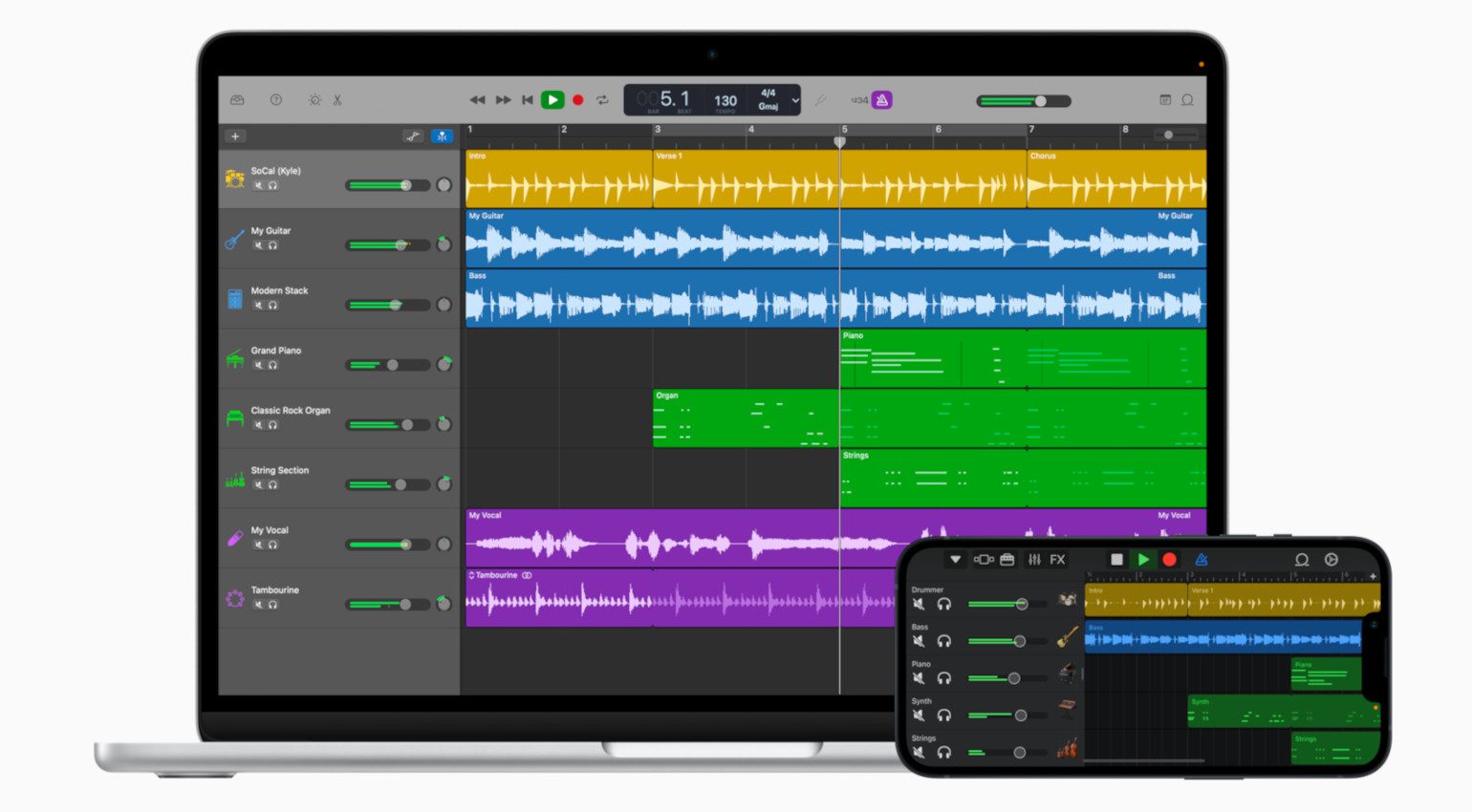
Without being too deeply focussed in any one area, GarageBand covers all the basics. What’s more, it does so in a way that doesn’t force you into a certain workflow. So whether you prefer recording live instruments, or working with loops, samples, and softsynths there’s room to grow.
When learning about music production, taking up an instrument can be helpful in many ways. Luckily, GarageBand includes a collection of lessons for guitar and piano that allow you to learn well-known hit songs and get a feel of reading music as you follow the arrangement.
Another plus is that a touch-optimized version of GarageBand is freely available for iOS devices. So you can start ideas on your iPhone or iPad and turn them into songs later on your Mac. If you like the GarageBand environment but want a more advanced DAW, check out Logic Pro, as many aspects and instruments are shared between the two systems. Is it the Best DAW for Beginners?
- More from Apple
The Best DAW for Beginners: BandLab
BandLab’s browser-based DAW offers an immediate way to create music without any strings attached. Simply create an account on the BandLab webpage, open a new project and you’re all set to start making music.
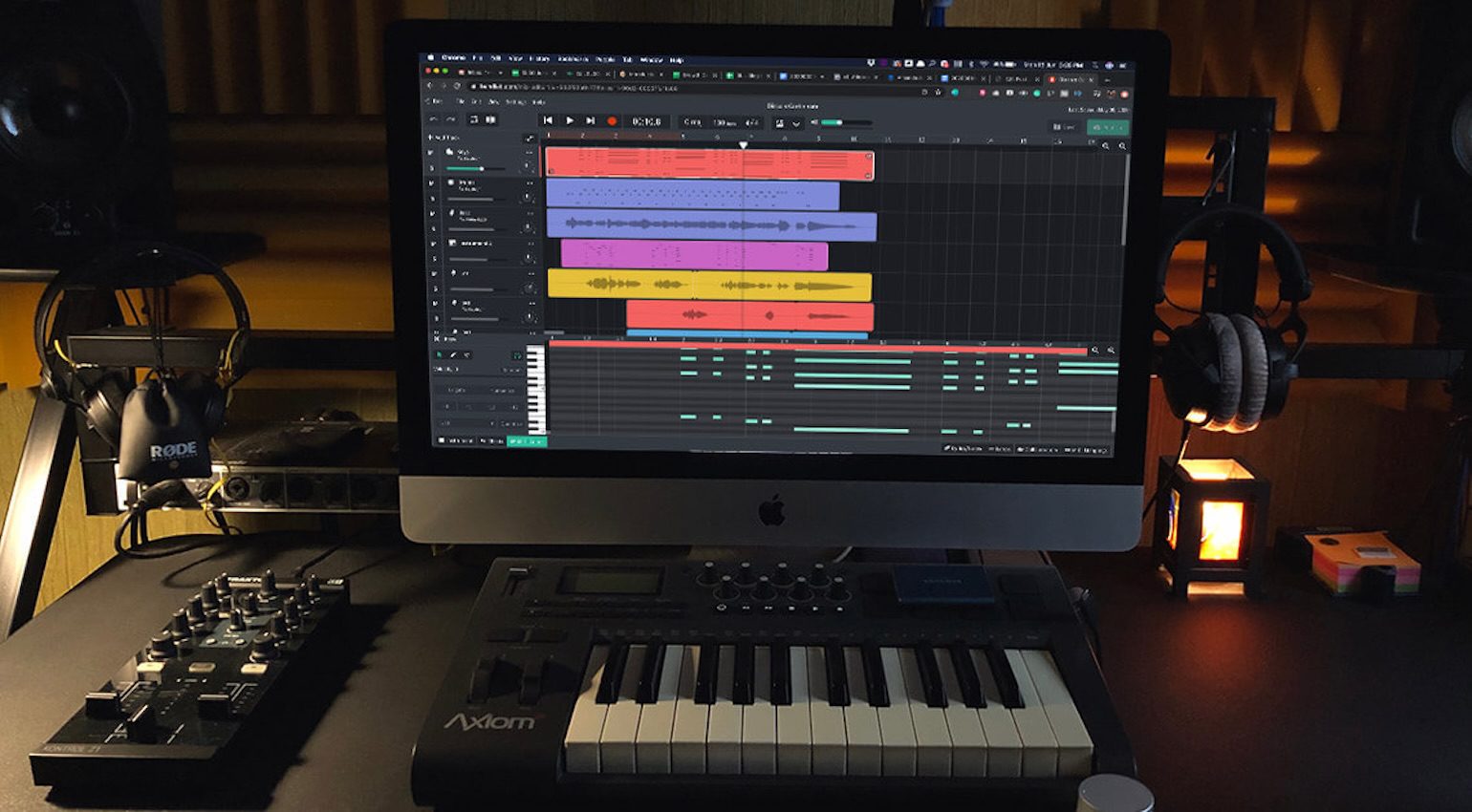
Using BandLab Studio is fast and intuitive, as every step has been streamlined to allow your ideas to flow. There are six different types of tracks to work with, including Audio, Virtual Instrument, Drum Machine, Sampler, Guitar, and Bass.
Once you’ve added a track, the corresponding controls appear in the window below the arrange area. This makes it easy to start programming drum patterns or loading sounds into the sampler from the diverse content library.
Exporting tracks is limited to 16-bit 44.1 kHz, but the process is fast, making collaborations a breeze. What’s more, BandLab is also available as a free iOS and Android app, so you can create beat sketches whenever and wherever inspiration strikes.
- More from BandLab
The Best DAW for Beginners: Image-Line FL Studio Fruity Edition
The Fruity Edition is the introductory version of the popular DAW, FL Studio. Loved by producers of Hip-Hop, Pop, EDM, and many other styles of electronic music, FL Studio provides an intuitive platform for sequencing, recording, sampling, and more.
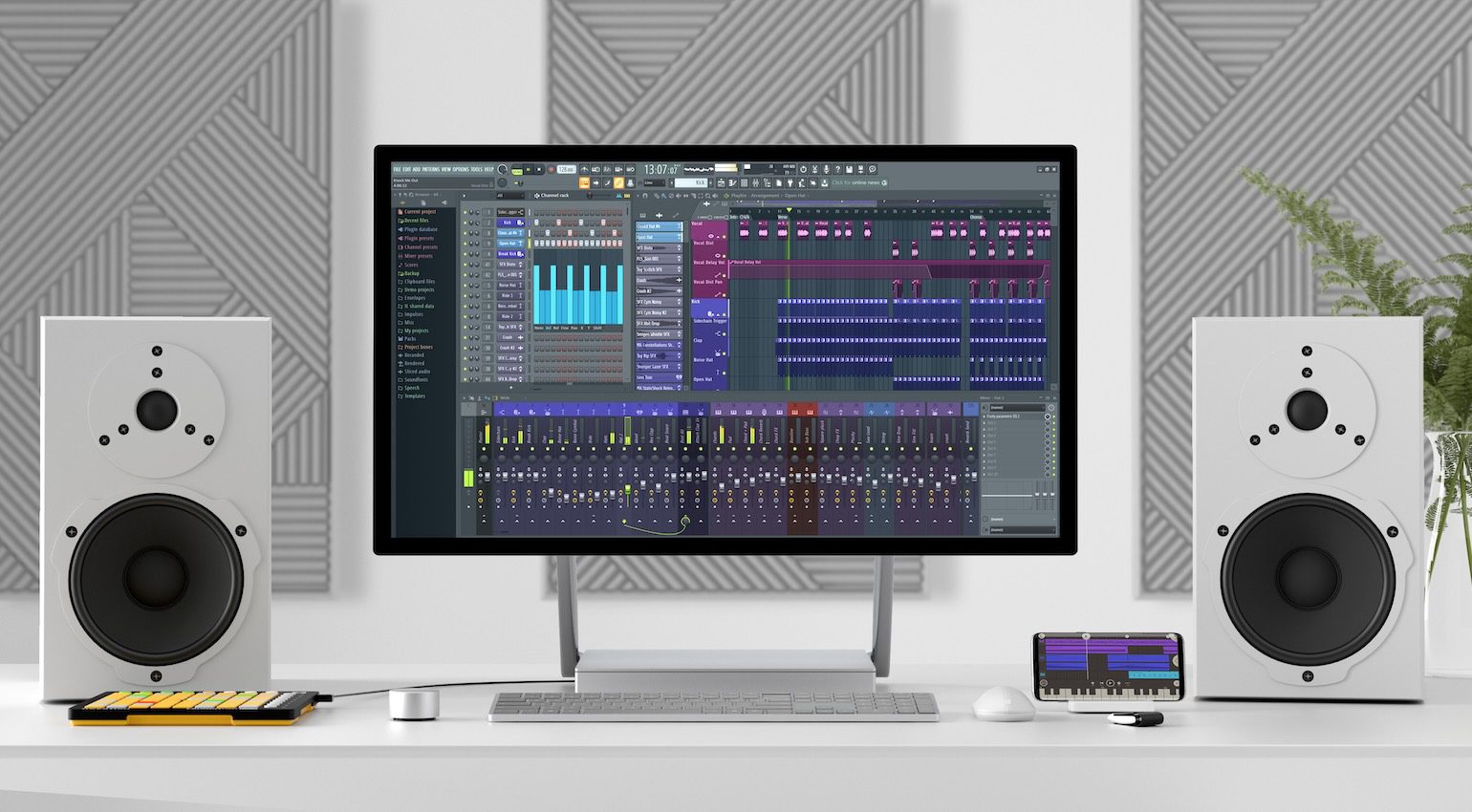
One of the exciting aspects of FL Studio is its simple but highly effective step sequencer. This allows you to lay down the basic groove pattern of your track in minutes, by dragging your selected drum hits onto separate sequencer tracks.
Although these 1-shot sampler tracks aren’t chromatic, you can quickly switch to creating patterns with the piano roll whenever the need arises.
Overall, FL Studio is DAW that leans towards beatmaking with a workflow that offers a great deal of fluidity. This makes it one of the best choices for beginners. In addition, there’s FL Studio Mobile for mobile devices.
- More from Image-Line

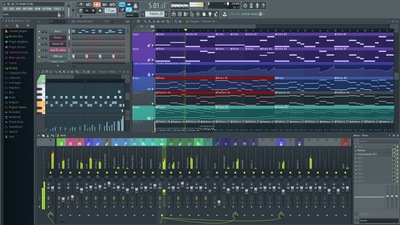
The Best DAW for Beginners: Serato Studio
If you are looking to get into music making from a DJ background or you’re interested in sample-based production workflows, Serato Studio offers a simple solution that will certainly get results quickly.
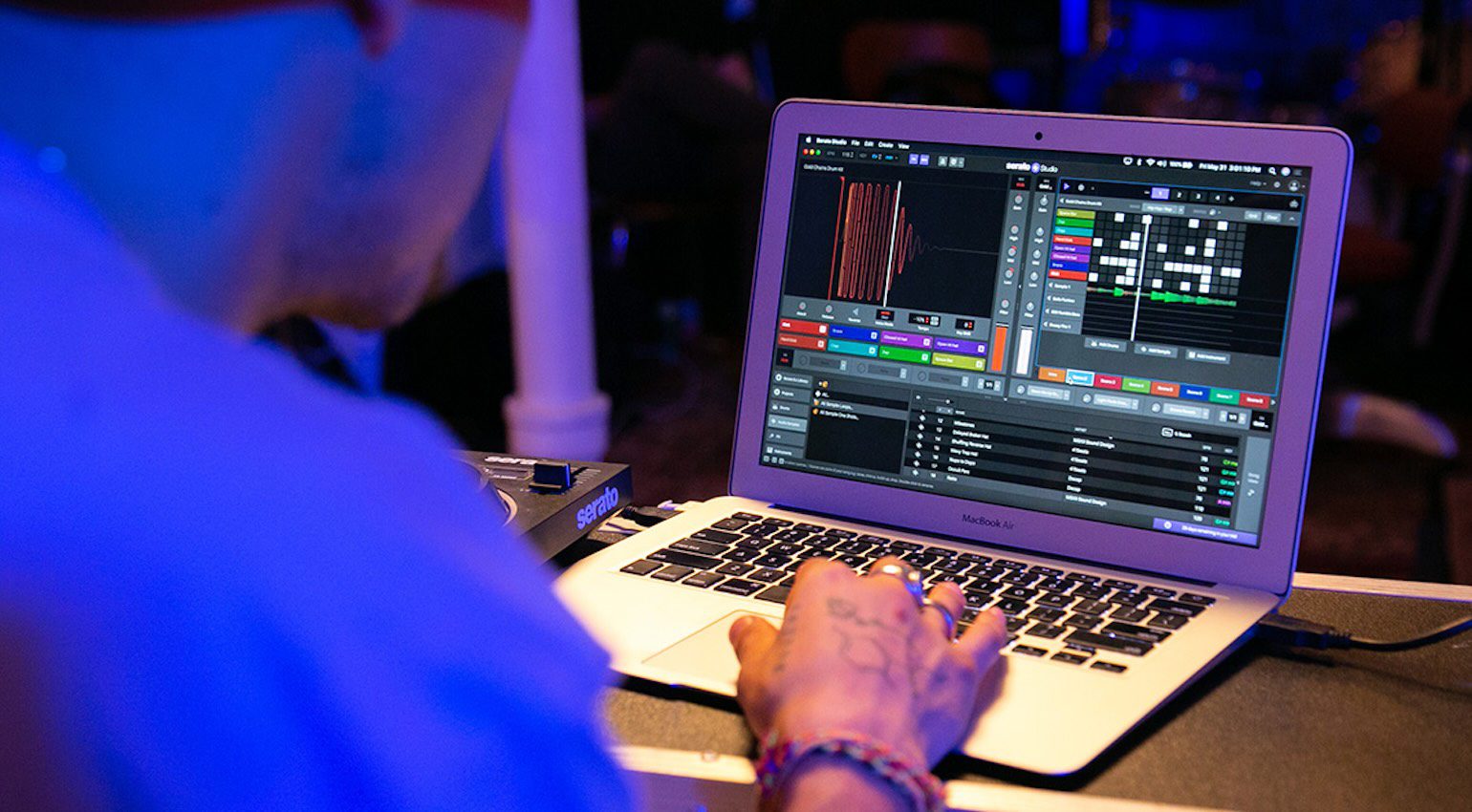
Besides the features, the interface design is a key aspect because it trims away a lot of unnecessary features that many DAW users tend to pay for and never use like Atmos support for example.
Stem Separation is a powerful tool within Serato Studio for isolating specific parts of a song. Meanwhile, the sampling engine automatically grids the audio and assigns slices to scenes so you can get busy creating fast.
While one could argue that Serato Studio is limited compared to other DAWs, I prefer to see it as a music creation system focused on beat-orientated music styles like Pop, Hip-Hop, EDM, and Electronica.
Serato Studio is available in the following different versions:

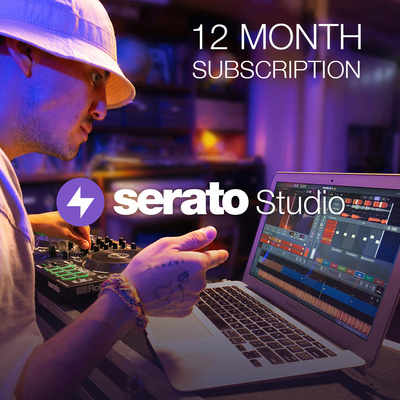

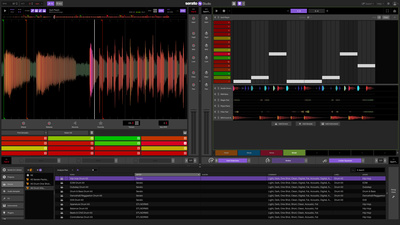
The Best DAW for Beginners: Ableton Live Intro
One of the main reasons Ableton Live is such a popular DAW is because of how quickly it throws you into the music-creation process. This immediately makes Live appealing to new beginners.
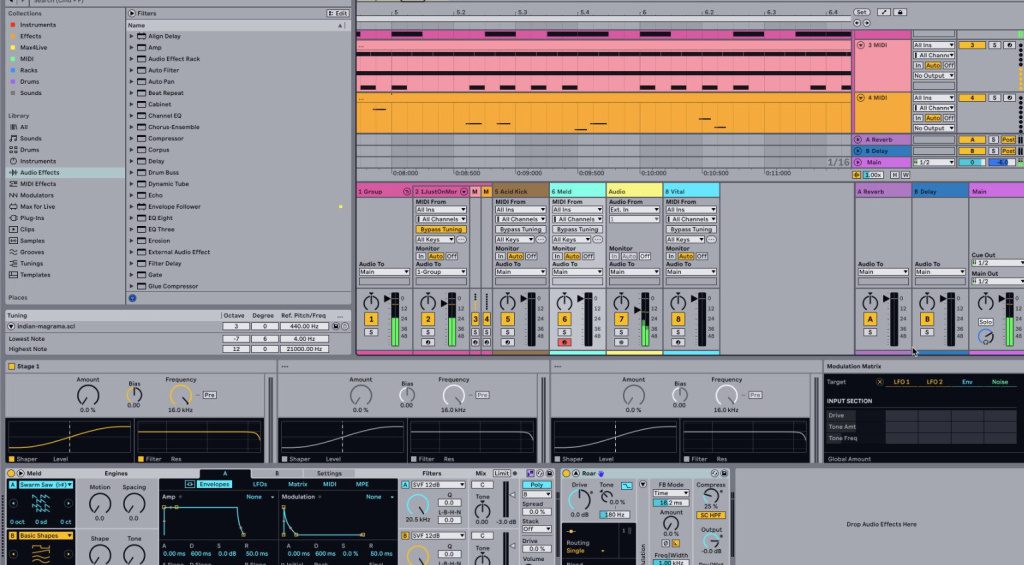
Most DAW systems are centered around the rather linear arrange window and mixer tab. However, Live’s clip-launch window allows you to create and work with multiple audio and MIDI clips of different lengths.
Live’s interface is a catalyst for creativity. This is made possible with a drag-and-drop workflow and viewing your instruments and effects in a tab rather than a floating GUI window.
What’s more, because it’s designed for live performance, Live is also one of the best DAW systems for sequencing and controlling external hardware instruments and effects processors.
Apart from the trial version, the easiest way to get hold of Live is:
- Live Lite – a version of Live bundled with many MIDI controllers, instruments, and other hardware.
- Live Intro
- More from Ableton

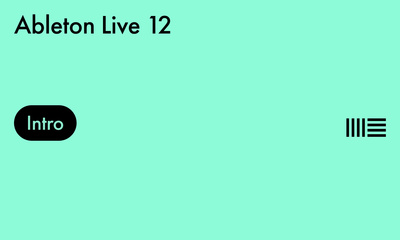
More about the Best DAW for Beginners:
- DAWs for more advanced users
- Plugin formats
- All about software
*Note: This article about the best DAW for beginners contains advertising links that help us finance our site. Don’t worry: the price for you always stays the same! If you purchase something through these links, we receive a small commission. Thank you for your support!
8 responses to “Getting Started: Which is the Best DAW for Beginners?”
 3,4 / 5,0 |
3,4 / 5,0 | 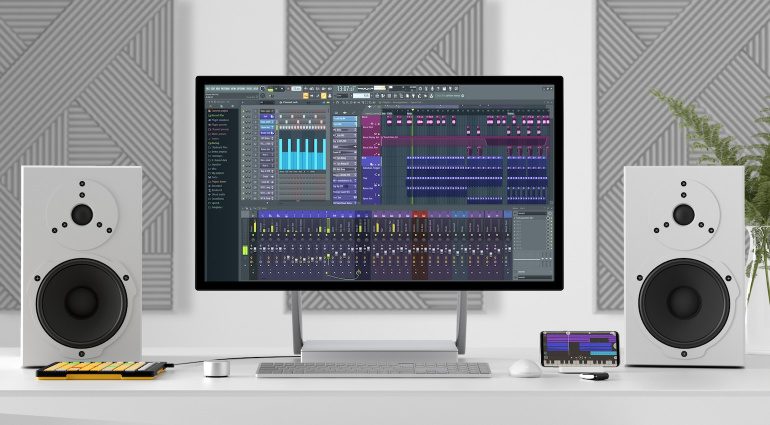


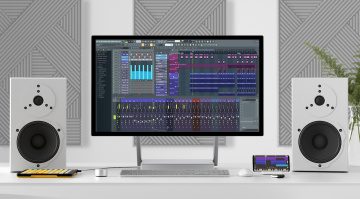

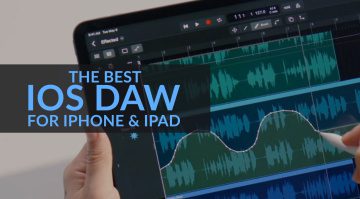
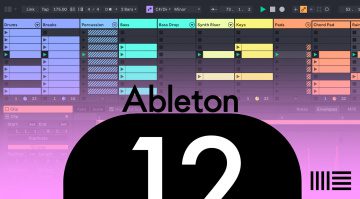
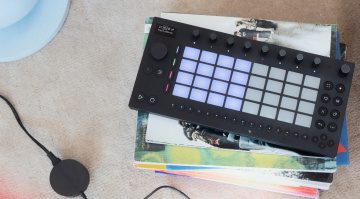
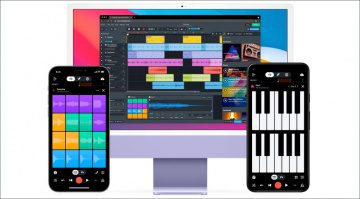
The first one that came to my mind was Reaper. $60 for personal use.
And there are a few free/cheap trackers out there, but Renoise is the most “DAW-like” that I know of, and it’s only $60.
just start whit a real DAW like Cubase 13.
Don’t sleep on Mixcraft 10 Professional. A + DAW!!
GarageBand seems to be readily dismissed, but it is quite awesome. Not everyone needs the most ‘pro’ software to do the job. Drummer is excellent. The amps, cabs and pedals are quite good.
Tracktion Waveform is very easy (inputs on left, outputs on right, music in the middle) and comes in a full-featured Free version, as well.
I really like the concept behind Reason Studio formerly Propellerhead. It occupies a somewhat unique position in the DAW world. Being a DAW yet acting as a VST and being used as a sound module is pretty cool. I’m currently just messing around with midi in out with MPC in standalone. I know since the change in ownership it’s not been that great but still the concept is great imo
what about Roland’s Zenbeats? ppl are sleeping big time on this one!
for beginners is not the same as cheap. ui and workflow is more impoartant, so reaper whilr beeing cheap, is no beginner daw. my choice would be studio one artist edition, often bundked with presonus audio interface.
You are currently viewing a placeholder content from Facebook. To access the actual content, click the button below. Please note that doing so will share data with third-party providers.
More InformationYou are currently viewing a placeholder content from Instagram. To access the actual content, click the button below. Please note that doing so will share data with third-party providers.
More InformationYou are currently viewing a placeholder content from X. To access the actual content, click the button below. Please note that doing so will share data with third-party providers.
More Information